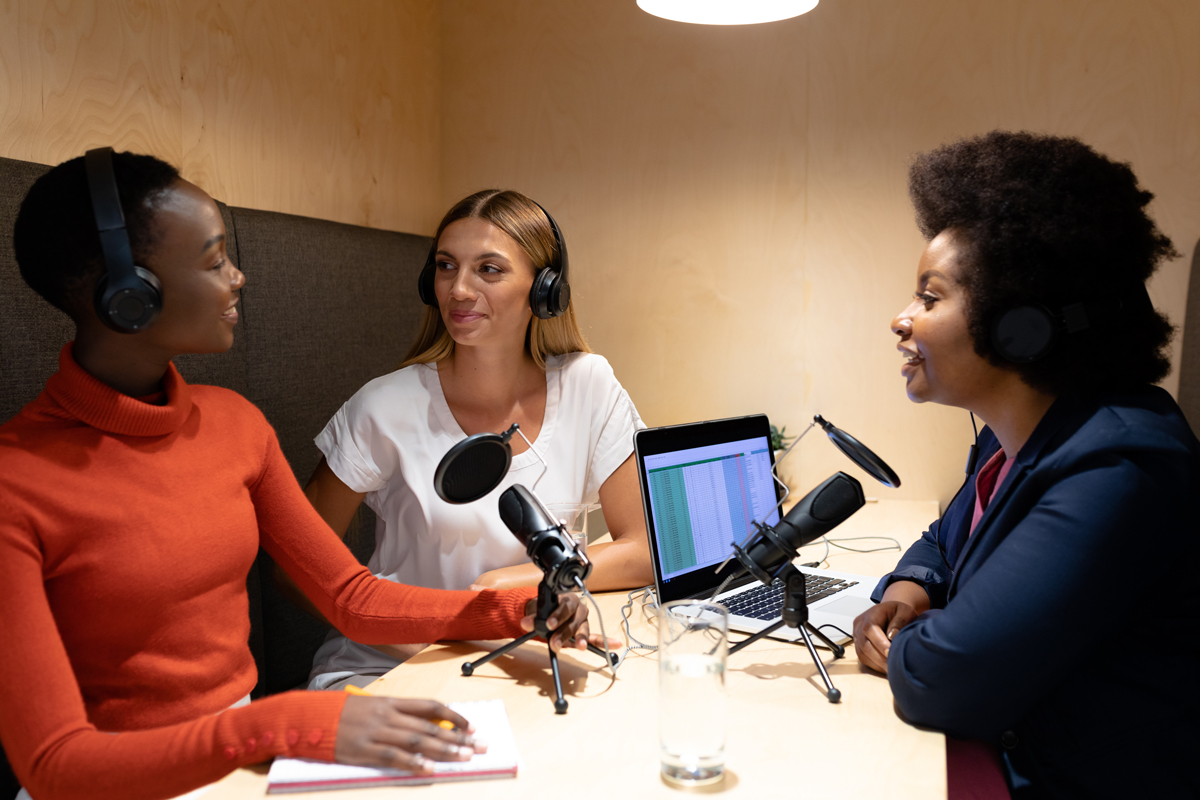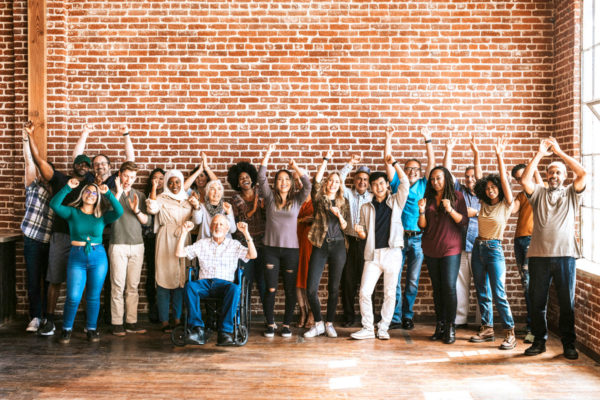6 Ways to Build Your Multicultural Competence One Step at a Time
“Educating the mind without educating the heart is no education at all.”
– Aristotle
These days with all the reports of racism all around us, many people are wondering what we can do about it.
It’s hard to let go of long held beliefs. And let’s acknowledge that learning about diversity, racism, and cultural competence can be difficult.
Cultural competence involves “the ability to understand, appreciate, and interact with people from a culture or belief system different from one’s own” (DeAngelis, 2015).
Let me say up front – I am not an expert on diversity, inclusion, or promoting social justice. I am a learner. I’m working to increase my awareness and understanding. I’m on the path. And I am learning a lot, including that the increasing diversity of today’s U.S population and the devastating consequences of hate and racism require a wide-awake and multi-faceted response to promote greater diversity, inclusion, and equity. I am learning that to reduce hate in all forms we need to understand them.
Racism, inequality, and hate are thriving in America. In a country in which so few of us consider ourselves racist, this may be a controversial statement. Racism creates false hierarchies of advantage and human value affecting the way we treat people – based on skin color, ethnicity, gender, religion, gender identity, age, or body type. According to Dr. Ibram Kendi (2019), director of Antiracist Research at American University, a racist – supports racist policies through action, inaction, or by supporting racist ideas.
“To maintain…racism, individuals and institutions need only do nothing about it.”
– Roberts & Rizzo (2020)
The U.S. has always been a country populated primarily by immigrants and their descendants, whether they’ve arrived recently or centuries ago (Brookings Institution, 2021). As a country and as individuals, Americans are deeply affected by racism and the profound effects of marginalizing other people. Slavery and racism date back to the very foundation of the U.S. and are central to the DNA of the U.S. – a lens through which we see the world (Hannah-Jones, 2019).
Whether we acknowledge these issues or ignore them, whether we actively perpetuate racism or passively stand by, there are real costs for all of us and to future generations – psychosocial, political, economic, and in access to education, workplaces, resources, and opportunities (Andoh, 2021; Roberts & Rizzo, 2020).
Racism is learned, it is not inborn, and is “a culmination of factors that are deeply woven into the fabric of U.S. society” (Roberts & Rizzo, 2020). If we don’t shift as individuals, communities, and as a society to reverse current trends, we risk perpetrating continued inequities and harm to contemporary and future generations, whether through our actions or our silence.
How do we transform the prevalent, widespread, and damaging effects of racism? I don’t have the answers, but here’s what I’m learning – tackling racism is a process that must be addressed at every level of our society. If we keep looking out there for other people to fix it, we’ll never create meaningful systemic change. To form a more just and equitable society, we need to liberate ourselves and each other from racism at the micro level – within each of us as individuals – and at the macro level – addressing pervasive systemic biases including laws, institutions, governmental units, educational systems, and workplaces.
And – tackling racism is an opportunity to fully engage our humanity – to treat other people as we want to be treated. Many traditions, including Christianity, Judaism, Islam, Buddhism, Hinduism, Taoism, and Confucianism, advocate for the reciprocal ethical principle of caring about the stranger as we care about ourselves (Baumard & Boyer, 2013). As we defuse racism, we can each play a part in creating a more compassionate and equitable world.
6 Ways to Build Your Multicultural Competence
1 – Begin where you are today. Wherever you are, let yourself know it’s OK to begin learning from here. It’s better to begin from wherever you are today than not to begin at all. And then take a breath and take one step, take a breath and another step, and another.
2 – Realize that acquiring multicultural competence involves learning new skills. According to psychologists (Mio, Barker-Hackett & Tumambling, 2021; Kite 2015), the three main skills include:
- Becoming aware of your own cultural values and biases.
- Learning to value the worldviews of other people.
- Learning and using culturally relevant interpersonal skills.
3 – Build your diversity and multicultural understandings. Learning new skills and examining your old beliefs is a developmental process. Here are a few strategies:
- Engage a growth mindset (Dweck, 2016) – let yourself be open to learn about viewpoints different from your own.
- Seek out information from a variety of sources.
- Ask questions.
- Have conversations about topics such as: stereotypes, bias, inclusion, systemic racism, anti-racism.
- Keep learning, growing, and challenging your old ideas and beliefs.
This link to the University of Massachusetts diversity website offers a wealth of resources – to listen to, watch, read, and take action – for youth, teens, adults, parents, and educators.
4 – Do the work. Doing the work involves reading, learning, and even more than that. Doing the work involves inviting ourselves and others to the process of self-awareness and self-examination – looking at and owning up to our biases and working toward increasing our awareness of our own privilege (Kendi, 2019). This is not a once-and-done activity, rather it requires a persistent, regular process of self-awareness and self-development.
5 – Join with others to discuss and take action to promote diversity, inclusion, anti-racism, and related issues. Join a discussion group, form a group, take a single class or a multi-session course. Dialogue with people from different ethnic, racial, or religious groups. Become involved on a taskforce to create positive change.
6 – Talk to your children and grandchildren about race and inclusion. According to experts, we adults share our attitudes about race with kids whether intentionally, unintentionally, or accidentally (APA, 2020; Hughes, 2003). For more information, see:
- WTTW: Talking to Young Children About Race and Racism.
- Smithsonian National Museum of African History & Culture: Talking About Race.
Building multicultural competence and combating racism is a step-by-step process that requires systematic shifts at individual and societal levels. In the 21st century, we have an opportunity and a mandate to deepen our humanity as we take the difficult and crucial steps toward creating a more compassionate and equitable world.
Send your comments and suggestions to Ilene!
Click here to send Ilene an email with your thoughts about this blog post.
References:
- Andoh, E. (2021). Psychology’s urgent need to dismantle racism. Monitor on Psychology, 52(3).
- Baumard, N. & Boyer, P. (2013). Explaining moral religions. Trends in Cognitive Sciences, 17(6), 272-280.
- DeAngelis, T. (2015). In search of cultural competence.
- Dweck, C. (2016). What having a “growth mindset” actually means, Harvard Business Review.
- Hannah-Jones, N. (2019). The 1619 project: New York Times magazine. In Elliott, M., Hughes, J., Silverstein, J., New York Times Company & Smithsonian Institution.
- Kendi, I.X. (2019). How to be an antiracist. New York, NY: One World.
- Kite, M.E. (2015). Multicultural competence: Engaging in difficult dialogues that are inherent in teaching about diversity. American Psychological Association.
- Mio, J. S., Barker-Hackett, L., & Tumambing, J. (2012). Multicultural psychology: Understanding our diverse communities (3rd ed.). New York, NY: Oxford University Press.
- Roberts, S. O., & Rizzo, M. T. (2020, June 25). The Psychology of American Racism. American Psychologist. Advance online publication
- The Brookings Institution. (2021). Our nation of immigrants.
Copyright © 2021 Ilene Berns-Zare, LLC, All Rights Reserved
Ilene is a Featured Author on PsychologyToday!
Read her blog series Flourish and Thrive: Navigating transitions with mindfulness and resilience.

What part are you playing in creating a more compassionate and equitable world?
Tap into your strengths, purpose, and potential to flourish in life and work.
If you’d like to discuss how Ilene Berns-Zare Coaching can help you achieve your goals, Contact Ilene.
Coaching with Ilene Can Help You Call Yourself to Action
Ilene Berns-Zare, PsyD, PCC, CMC (ICF Credentialed) is an Executive and Personal Coach and Speaker. Ilene helps people live their best personal and professional lives by bringing mind, body, and spirit into flow with strengths, purpose, and potential. She inspires clients to find fresh perspectives and access their full potential as creative, resourceful, whole persons. Find Ilene online, set up a free discovery coaching consultation, and access free resources at https://ibzcoaching.com/.
Please share this blog with anyone who might be interested in reading it!
We would love to hear from you! We are interested in your suggestions for this newsletter, your reactions to this one, or providing more information about coaching.




